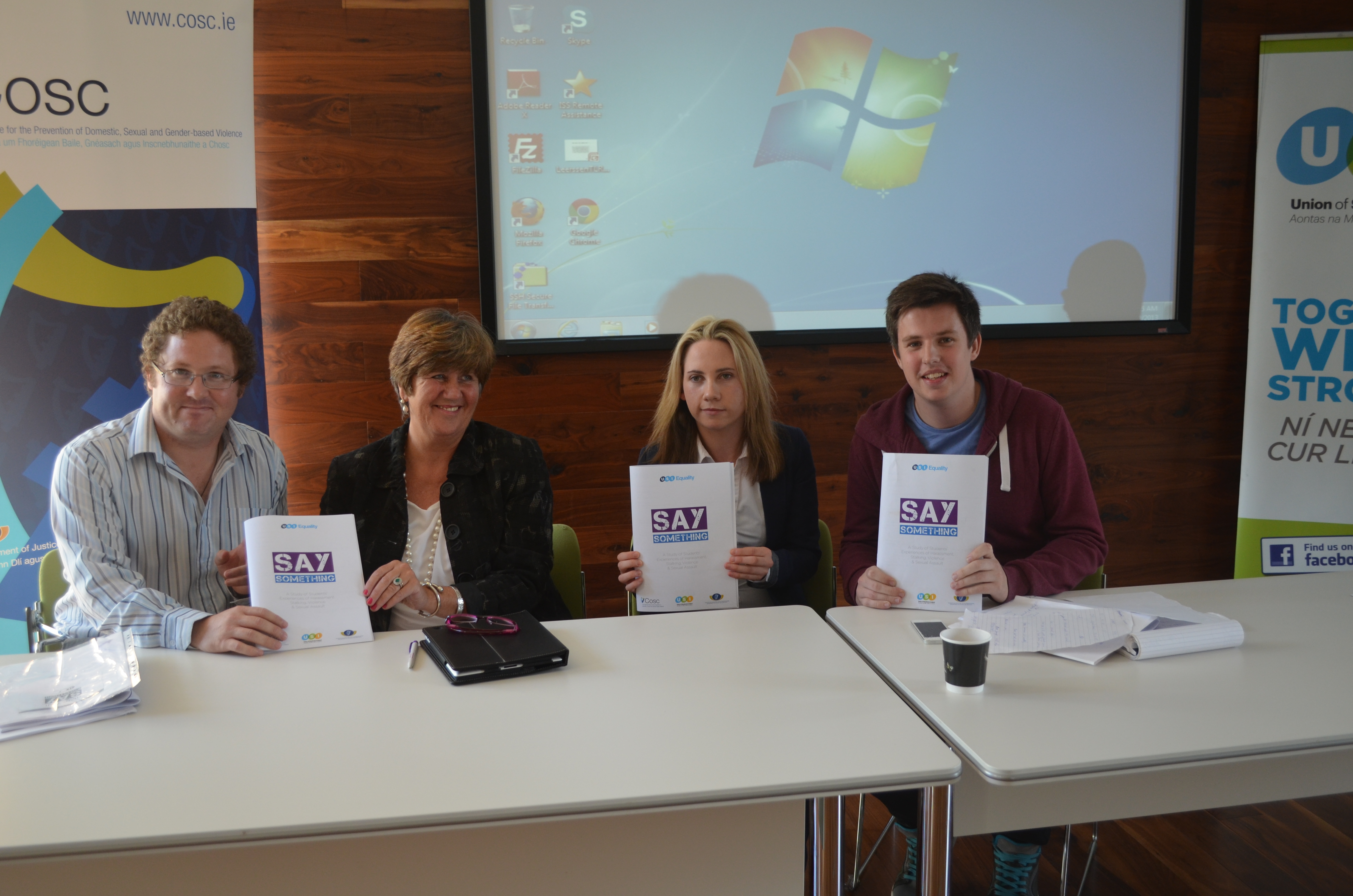16 per cent of students have encountered an unwanted sexual experience and 11 per cent of students have had unwanted sexual contact in third level institutions, according to a study launched today in the Long Room Hub, Trinity College Dublin.
The “Say Something” Survey was carried out online from January 10 to February 15 of this year by the Union of Students in Ireland (USI) with support of Cosc – the National Office for the Prevention of Domestic, Sexual and Gender-based Violence. The purpose of the survey was to measure the level and nature of sexual violence experienced by third level students.
The survey found that 1 in 5 women have experienced some form of unwanted sexual experience, but out of those 430 victims only 3 per cent had reported to college authorities. The number of sexual harassment cases reported to the Gardaí was under 3 per cent.
30 per cent of students that did not report cases of unwanted sexual experiences said that they were either “ashamed or embarrassed” about what happened.
Over 60 per cent of the incidents involved the consumption of alcohol or drugs and three-quarters of perpetrators were from the same university or college.
Speaking at the launch, former President of Trinity College Students’ Union (TCDSU), Senator Ivana Bacik, said that the survey highlighted “the prevalence of violence in society” and that the “enormous dark figures” of incidents that went unreported were “depressing, but predictable”.
Remarking on her experience dealing with harassment and bullying cases in Trinity, Bacik said that “much of what we see is the same as it was then, but before it was confined to the pages of the Pirahna”.
The study also revealed that lesbian, gay, bisexual and transgender (LGBT) students were more likely to be victims of physical violence, obsessive behaviour, or unwanted sexual experiences. 14.72 per cent of survey respondents were LGBT students and 25 per cent of those respondents would have encountered unwanted sexual behaviour in comparison to 16 per cent of heterosexuals.
Vice President for Equality & Citizenship for USI, Laura Harmon, raised the question of awareness as she hopes that the results will produce further research and act as a tool for future awareness campaigns.
TCDSU Welfare Officer, Stephen Garry, added that “the findings provide scope for improving future campaigns that challenge this behaviour. It also highlights the need to encourage those who have experienced these issues to report it, and the need to publicise the personal support we can provide within the university”.







